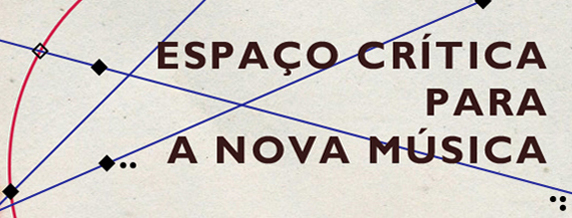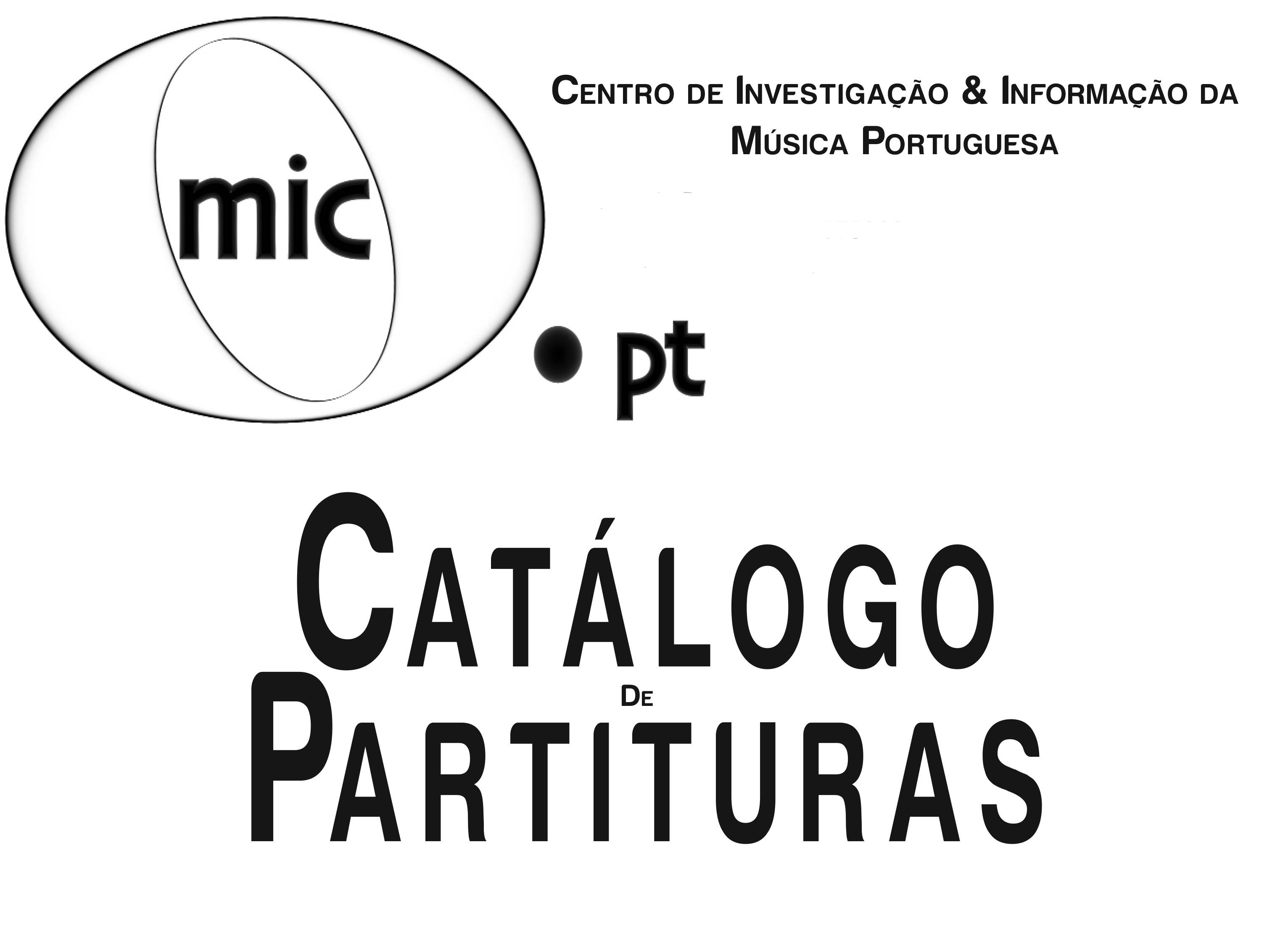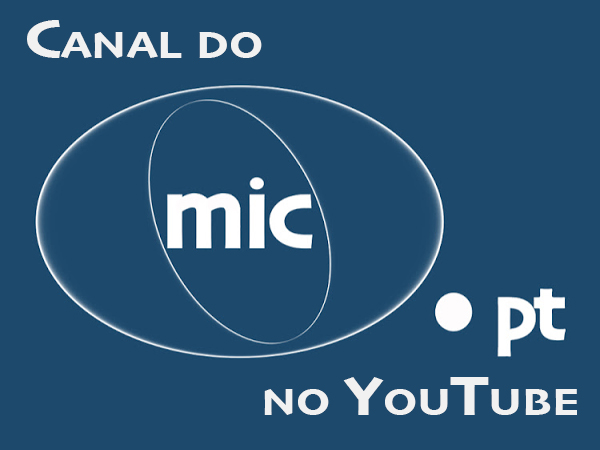Jorge Peixinho on Música Hoje (Music Today) (emission from April 11 on Antena 2) .
programme available through RTP Play: www.rtp.pt/play/p1390/e191043/musica-hoje
In 2015 Jorge Peixinho would have been 75 years old...
He was a unique figure in Portuguese music of the second half of the 20th century. Since the 1960s he was one of the predecessors when it comes to Portugal’s opening to the European music avant-garde. His solid academic education was always accompanied with great creativity, which resulted in an output not only of considerable dimensions, but also deeply diverse and politically important. In his music one can recognize an effort to control his passionate spirit inside a set of rules, auto-imposed always with great lucidity. Portuguese musicologist, Paulo de Assis, writes in the introduction to the book Jorge Peixinho. Escritos e Entrevistas (Jorge Peixinho. Writings and Interviews): “precocious talent, wanderer around the great, post-war, European avant-garde centres (…), Jorge Peixinho always presented a firm and tenacious will to transform the musical environment that embraced him, even when the circumstances and the results were being adverse"[1].
Jorge Peixinho was born in Montijo in 1940 and he began his piano and composition studies with his aunt Judite Rosado. Between 1951 and 58 he studied at the National Conservatoire, having had as professors Artur Santos (piano) and Jorge Croner de Vasconcelos (composition). Along 1960, in Venice, he was Luigi Nono’s student, and in the Netherlands he made a residency at the Electronic Music Studio in Bilthoven. He also studied composition at the Santa Cecília Academy in Rome with Boris Porena and Goffredo Petrassi (1958-61). “[In Italy] I discovered my own personality. Due to the limitations of the Conservatoire and of our music standards I was made to adopt an impersonal neoclassical style, which marks my first pieces. Yet in Rome, where I had contact with conscious teaching of music of our days, I felt that my music interests turned towards the works of Schönberg and particularly Webern, whose music I barely knew in Lisbon. This interest prompted me to take up composition according to dodecaphonic rules, yet without following serial organization”[2].
Jorge Peixinho completed the Meisterkurse at the Basel Music Academy, where he was Pierre Boulez’s, Karlheinz Stockhausen’s and Gottfried Michael Koenig’s student. Between 1960 and 1970 he participated in the International Compositions Courses in Darmstadt, collaborating in the collective composition projects directed by Karlheinz Stockhausen. “There were two fundamental parts in the work of Stockhausen: one of them was the seminar where one debated significant aspects of the music movement nowadays, such as the position of the composer in the world and towards the society or the relations composer-performer (yet approached from a completely new angle). It was a phase of meditation, study and reflection on theoretical concepts. (…). Stockhausen demonstrated precisely that today it was impossible for a composer to be able to reveal entirely his whole creative potential and to detach from previous formulas and clichés related with melody”[3]. And thus, the German composer recalls Jorge Peixinho in his testimony published in 2002 in the book Jorge Peixinho in memoriam: “During the New Music Courses in Cologne and the International Summer Courses of New Music in Darmstadt, Jorge Peixinho was my student for a long time: a sui generis talent, very friendly and loyal. I also met him a couple of times in Lisbon. His friendliness continued extraordinary and his musical competence stayed forever in my memory. Particularly at my concerts and seminars in Lisbon I searched in vain for the reasons to the fact that Jorge Peixinho’s music was so underestimated when compared with the others of much less talent. It is true that he was very modest. In other superior worlds his virtues will make him grow rapidly”[4] .
Jorge Peixinho was professor of composition at the Porto Music Conservatoire (1965-66), the National Conservatoire (1985-95) and at other different composition courses in Portugal, Spain, Italy and Brazil. In spring 1970, in collaboration with some Portuguese musicians, that is, Clotilde Rosa, Carlos Franco, António Oliveira e Silva, among others, he founded the Lisbon Contemporary Music Group (GMCL), where he participated as pianist and music director, and with which he made a lot of concerts in Europe, Brazil and Argentina. He composed a major part of his works expressly for the GMCL, an ensemble organized as an open space of variable constitution, with the main objective to promote works by Portuguese contemporary authors. As pianist and the GMCL music director, Jorge Peixinho dedicated himself to the promotion of contemporary music, including a vast repertoire of younger composers. In this sense the ensemble performed innumerable first auditions of works by Portuguese composers. The GMCL opened a window for the international contemporary music creation, and allowed names such as Constança Capdeville or Emmanuel Nunes, among many others, to become known. “The idea [to establish the GMCL] came up on the occasion of a concert at the Gulbenkian Foundation. We, that is, me and the other musicians who participated in this concert, constituted a core interested in the maintenance of a continuous music work. Our interest was particularly focused on the cultivation of contemporary music among us, but it also embraced music research and exploration”[5].
During 2015 in the context of Jorge Peixinho’s 75th anniversary, the GMCL, in collaboration with other entities, is organizing various initiatives, such as the 1st International Composition Competition GMCL/Jorge Peixinho, as well as concerts, conferences and electroacoustic sessions…
Jorge Peixinho always cultivated a reflection on his work and path, at the same time maintaining awareness with regard to the aesthetic dynamics and debates characterizing the second half of the 20th century. As composer he revealed himself through his innovative ideas, great flexibility in the context of different aesthetic currents, always allied to experimenting with sound. Before the Five Pieces for Piano, Jorge Peixinho’s work catalogued as opus 1, still as student of the National Conservatoire he composed around 40 works, mostly for piano. “He has never confined to any specific music aesthetics, always evolving during his whole career. In his works he integrated various compositional techniques always seeking to build a new timbral universe. In this sense he developed the concept of «rigour and freedom» trying to discover the balance between improvisation and written composition”[6]. In spite of his contact with the techniques of integral serialism, “he never used it in an orthodox manner, giving preference to what he called as «virtual serialism» or «serial thinking without a series» (…)”[7].
The objective of his music has always been the construction and organization of a new and personal sound world. Simultaneously, Jorge Peixinho belongs to a group of composers believing in the progress of the music language, that is, “in the continuous innovation and necessity of overcoming previous aesthetic parameters”[8]. It is the balance between the lyrical and the rational, between speculation and expression, that distinguishes his work, encompassing diverse genres: choir music, chamber and solo music, including some piece with electronics, electroacoustic music, works for orchestra with or without soloists, as well as music for theatre, cinema and multimedia. The composer’s own words are quite revealing in this respect: “In my case I tend both for freedom and (…) rigour. My intention is that (…) the freedom in creation, that is, the potential that occurs to me at every single moment (…) is always tempered by a strong and rigorous principle. At times this rigour existing in my work can be a priori or predetermined, yet I need to confess that in most cases it appears a little afterwards. It is a posteriori that I normally «rigorize» all the freedom in terms of organizing the music spaces, the various dimensions of time and the relations of tension and release between the intervals”[9].
Jorge Peixinho demands from the audience an intense attention of listening. For him music is “one of the highest manifestations of the human spirit and as such it accompanies (…) the spiritual evolution of a civilization and society, (…) it exists neither to serve any audience, nor for any kind of vulgarly utilitarian purpose”[10]. The increasing influence of Karlheinz Stockhausen is detectable in his work from 1963, culminating in the aleatory approach of Eurídice Reamada (1968). From 1969 onwards, his music gained a particular lyricism, based on the introduction of quotations, and the temporal distension within the refinement of the timbre. His works from the second half of the 1970s and the 1980s aim for a development of a harmonic language based on different paradigms of the intervals. The instrumental gestures create sonorous groups, which would become the functional element of the language in every work. For example the piece Ouçam a soma dos sons que soam (1986) relies on the successive transformation of a mother-chord, patent in “textures evolving polyphonically and co-existing within a kaleidoscopic game of timbres”[11]. Simultaneously, at the beginning of the 1980s, the composer began to give value to false quotation and self-quotation, exploring stylistically “contaminated” sonorous contexts. These prove the influence of postmodernism, with which he had an ambiguous relation. His influence was wide; composers as Clotilde Rosa, Paulo Brandão, Lopes e Silva or Isabel Soveral, among many others, owe him a decisive impulse for their artistic evolution.
Throughout his career and in the context of the concept of “rigour and freedom” Jorge Peixinho used diverse techniques and compositional approaches, that is: aleatory processes, open forms, improvisation, experimentation, timbral explorations, spatialization, quotation and self-quotations, as well as collage and montage. Manuel Pedro Ferreira considers that the composer, having the intention to affirm a very personal sound universe, sought to “reconcile his post-serial heritage with the postmodern sensibility. He emphasized certain aspects of his poetics over other ones, yet without reformulating it totally, and without the concern to filter all the new works through this new sensibility”[12]. Among his works that use quotations, and which reflect a profound appreciation of the music from the past, the composer gives us three examples: Eurídice Reamada (1968) with elements taken from the Orpheus by Monteverdi and Gluck; As Quatro Estações (1972), where the composer used in a more developed way the processes of quotation, “from pure and simple quotation (…) up to dismantling the whole structure, from the melodic, harmonic or timbral point of view”; and also A idade do ouro (1973), “based on the original music from the film A Pousada das Chagas, which received the SPA Award in 1975, but got its premier performance only in 1996, one year after the composer’s death"[13].
The main characteristic of Jorge Peixinho’s music “is a kind of «oneiric sonorous atmosphere», where small transformations appear through artifices in the counterpoint or harmonic and timbral filtering, etc”[14]. For his work the composer received various national composition awards: the Award of the National Conservatoire (1958), the Sassetti Award (1959), the Casa da Imprensa (Printing House) Award (1972), the Composition Award of the Calouste Gulbenkian Foundation (1974), the Award of the Portuguese Music Council (1984), the Chamber Music Award of the Portuguese Authors’ Society (1975 and 1985), and finally, the Joly Braga Santos Award and the Golden Medal for Cultural Merit of the Portuguese Secretary of Culture (1988), as well as the Golden Medal of Montijo (1991). Jorge Peixinho’s work has been digitalized and it is presently published by the CESEM, Centre for Studies in Sociology and Music Aesthetics of the Universidade Nova de Lisboa, in partnership with the Portuguese Music Research & Information Centre, whose website www.mic.pt provides at the moment 96 of his scores. Another editorial project focused on the work of Jorge Peixinho, also being developed under the auspices of the CESEM and coordinated by Francisco Monteiro, concerns the critical edition of Jorge Peixinho’s chamber works.
Jorge Peixinho left us 20 years ago, on June 30th, 1995. Politically active since the end of the 1960s, and connoted with political left-wing views close to the Portuguese Communist Party, he knew how to join in music both moral involvement and artistic integrity. In this sense his work, together with the music of many other Portuguese composers, constitutes a powerful tool to reverse the gradual processes of degradation of our identity, being simultaneously a manifestation of what is the most valuable in Portuguese culture.
---
1 Paulo de Assis, Introdução (Introduction) in: Jorge Peixinho. Escritos e Entrevistas (Jorge Peixinho. Writings and Interviews), Porto/Lisboa, CESEM/Casa da Música, October 2010, p. 11 . English translation: Jakub Szczypa .
2 Jorge Peixinho in the Interview for Diário de Lisboa (1961), A era tonal terminou: a música dodecafónica não é a arte do futuro é já a do presente (The tonal era has ended: dodecaphonic music is not the art of the future but already of the present), published in:Jorge Peixinho. Escritos e Entrevistas (Jorge Peixinho. Writings and Interviews), op. cit., p. 190 . English translation: Jakub Szczypa .
3 Jorge Peixinho in the Interview by Mário Vieira de Carvalho (Vida Mundial, January 3 1969), Jorge Peixinho: as últimas experiências musicais segundo um prisma pessoal (Jorge Peixinho: the last music experiences from a personal perspective), published in: Jorge Peixinho. Escritos e Entrevistas (Jorge Peixinho. Writings and Interviews), op. cit., p. 234 . English translation: Jakub Szczypa .
4 Karlheinz Stockhausen, Um talento sui generis (A sui generis talent), in: Jorge Peixinho in memoriam, Lisbon, Caminho da Música, 2002, p. 81 . English translation: Jakub Szczypa .
5 Jorge Peixinho in the Interview by Carlos Benigno da Cruz (Portuguese Radio & Televison, July 22, 1972), Jorge Peixinho: vanguarda é futuro (Jorge Peixinho: the avant-garde is the future); published in: Jorge Peixinho. Escritos e Entrevistas (Jorge Peixinho. Writings and Interviews), op. cit., p. 320; English translation: Jakub Szczypa .
6 Evgueni Zoudilkine, Peixinho, Jorge in: Enciclopédia da Música em Portugal no século XX, directed by Salwa Castelo-Branco, Lisbon, Círculo de Leitores, 2010, p. 977 . English translation: Jakub Szczypa .
7 ibidem .
8 Cristina Delgado Teixeira, Música, estética e sociedade nos escritos de Jorge Peixinho (Music, Aesthetics and Society in the Writings of Jorge Peixinho), Lisbon, Edições Colibri, 2006, p. 211 . English translation: Jakub Szczypa .
9 Interview with the composer Jorge Peixinho by Eduardo Vaz Palma, published posthumously in Arte Musical (4th series, no. 1), 1995, p. 13 . English translation: Jakub Szczypa .
10 Jorge Peixinho in the interview to Revista Plateia (Plateia, 28 de Janeiro de 1969), Jorge Peixinho: a música, como toda a arte em geral, não existe para servir um público nem para qualquer fim grosseiramente utilitário! (Jorge Peixinho: both music and art in general, exist neither to serve any audience, nor for any kind of vulgarly utilitarian purpose!), published in: Jorge Peixinho. Escritos e Entrevistas (Jorge Peixinho. Writings and Interviews), op. cit., p. 250 . English translation: Jakub Szczypa .
11 Evgueni Zoudilkine, op. cit., p. 978 . English translation: Jakub Szczypa .
12 Manuel Pedro Ferreira, A obra de Peixinho: problemática e recepção (The work of Peixinho: problematics and reception), in: Jorge Peixinho in memoriam, op. cit., p. 258 . English translation: Jakub Szczypa .
13 Cristina Delgado Teixeira, op. cit., p. 166/67 . English translaton: Jakub Szczypa .
14 Jorge Peixinho, in B. Morton, Contemporary Composers, P. Collins (ed.), St. James Press, Chicago 1992, p. 735; quotation used in the introduction to the book Jorge Peixinho in memoriam, op. cit . English translation: Jakub Szczypa .





